5 Signs a Swimmer Has Taken Ownership of Their Sport
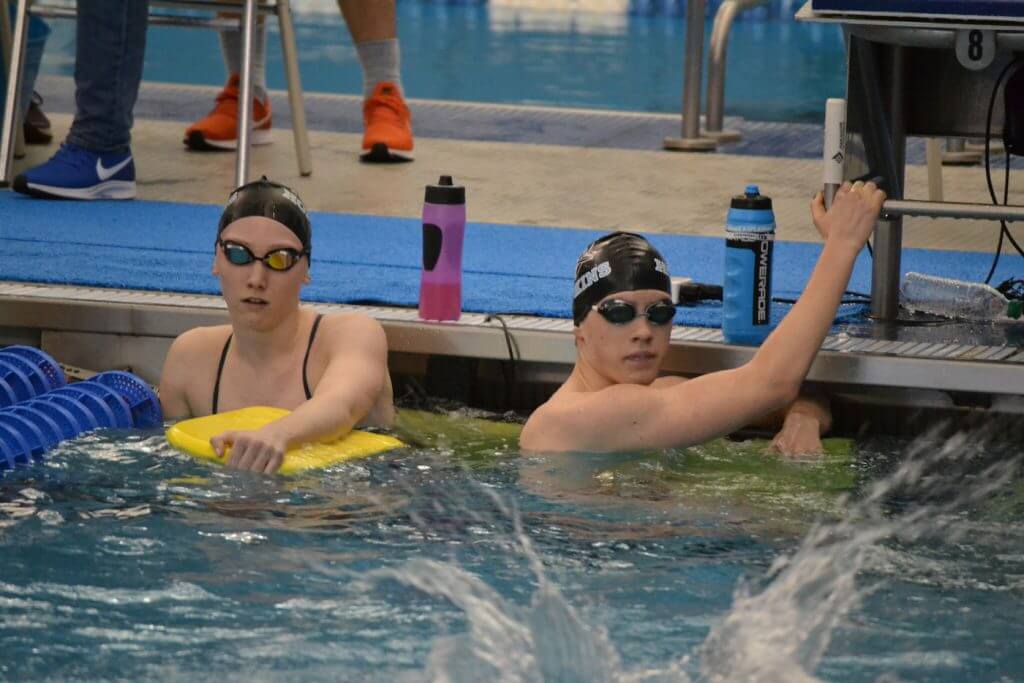
5 Signs a Swimmer Has Taken Ownership of Their Sport (Archive)
By Brad Jones
One common trait that you will consistently see in successful senior level swimmers is that they have complete ownership of their swimming. Over my years of working with high school kids on the Bellingham Bay Swim Team, I’ve realized that the idea of ownership is frequently used but often misunderstood.
As a coach, it is easy to see when a kid has taken ownership of their swimming. Here are five characteristics that you will always see in a swimmer who has taken ownership of their swimming:
#1. Excellent communication with their coach.
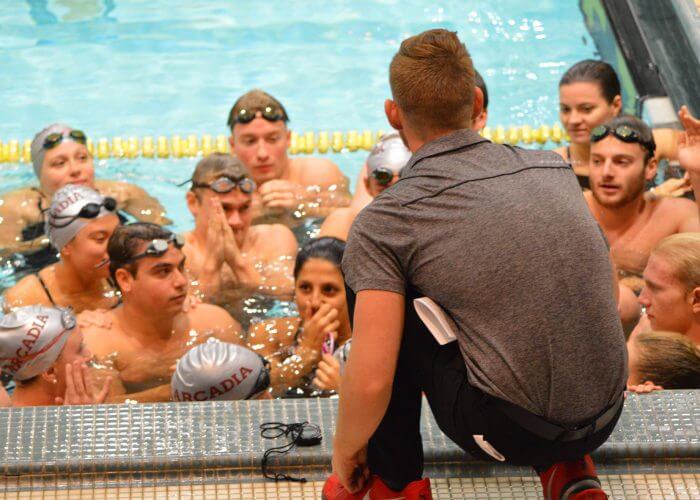
Photo Courtesy: Lori Beckemeyer
Clear communication with the coach creates alignment with the coach and allows you both to know the plan and execute it. The relationship that is built between swimmer and coach is extremely important, and clear communication is where it starts. By the time a swimmer gets to high school, they should be doing most – if not all – of the communication with their coach about their swimming. Parents should not be the ones asking a coach questions about things like meet schedules or letting the coach know that the swimmer has to miss practice. If there is any question about the plan or the reasoning behind it, a swimmer who has taken ownership will be talking to the coach. Get very good at information sharing.
#2. Ability to Connect the Dots.
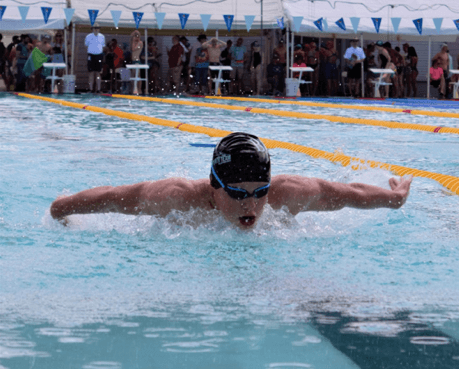
Photo Courtesy: Christina Boyd
It is important to have goals, but if a swimmer does not understand the details and actions that must take place to get to the goal, the odds of being successful are not good. For example, swimmers need to be very aware of splits that they need to be holding in practice to reach their goal time in a particular event. Or maybe they need to be getting five dolphin kicks off of each wall in practice. These details don’t happen at a meet unless you have been practicing them every day.
Having a goal time posted in your bedroom is great, but if you are not doing the little things everyday in practice to get to that goal time, you will most likely be disappointed at the end of the season. If you are connecting the dots, there will be no questions or mystery when that big meet comes around: you will be confident and prepared.
#3. Takes Responsibility for Actions.
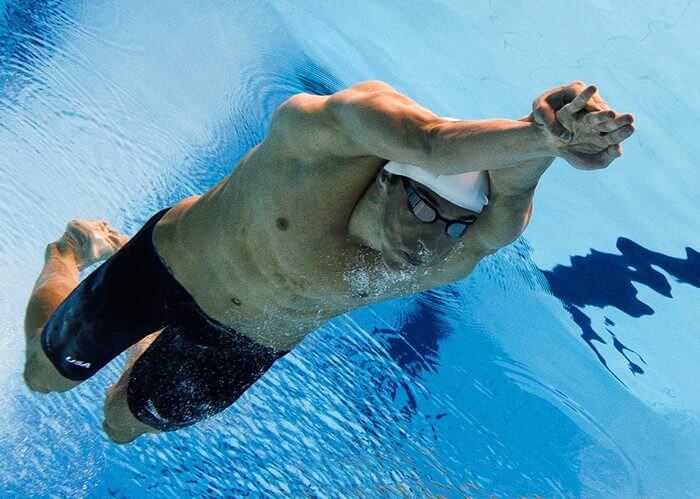
Photo Courtesy: Agence France-Presse
Swimmers are making decisions every day that can have an influence on long-term outcomes. For example, they often ask themselves: Should I go on the slower interval for this set, or challenge myself and chose the faster interval? Should I choose to do three dolphin kicks off the wall, when my coach wants me to do five? Should I breathe out of that turn when I know that I shouldn’t?
Taking ownership of everything you have a say in influencing not only empowers you to do what it takes to get the job done but also boosts the morale of the people around you and paves a two-way street of trust. It can be incredibly liberating to take full responsibility for what is happening or what has happened.
On the other hand, if you’re the kind of person who habitually blames others as soon as the ball gets dropped, you’re the one who’s ultimately going to pay the price. We have all been around those swimmers who are constantly making excuses or blaming others for why something went wrong or why something is going to go poorly. There is always that negative swimmer at meets who is setting themselves up for failure. First off, get away from that person: that is one part that you can control. Most of the excuses you hear from these swimmers are just that – excuses. As Jocko Willink would say, “They are lies.”
#4. Discipline
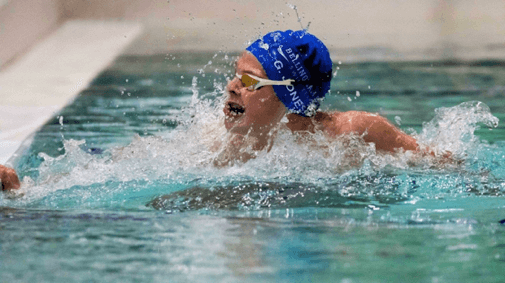
Photo Courtesy: Christina Boyd
Discipline and commitment require personal investment and effort from the onset, but this investment will liberate the person ready to put in the hours. In swimming, you must embrace the concept of delayed gratification. This is extremely difficult today, where most teenagers are motivated by things like social media, trophies for participation, staying in one’s comfort zone and immediate gratification and recognition at every turn. It takes incredible discipline to stay on the path and resist the temptations of immediate gratification.
If you are constantly choosing the easy way, the most comfortable way, or the way that gets you quick recognition without much effort, you are most likely seeking immediate gratification. Just as reaching a long-term goal takes time, so does the decay of a swimmer seeking immediate gratification. Indiscipline generally sets in progressively. If it is not stopped, it often causes degeneration and creates situations that can be costly for swimmers and teams.
Generally speaking, this means doing the right thing consistently, regardless of convenience or if anybody is “watching.” Sometimes you don’t feel like studying, sometimes you don’t feel like going to morning practice, and sometimes you have to try to get rides to practice… Do you find a way to get it done? Do you have self-discipline to do it when it’s not easy?
High-school-aged club swimmers need to have incredible discipline to get everything done and maintain their training schedule. If you have the discipline to get out of bed when the alarm goes off at 5 a.m. for morning practice, you win — you pass the test. If you are mentally weak for that moment and allow that weakness to keep you in bed, you fail. Though it seems small, that weakness translates to increasingly significant decisions in swimming and in life. However, if you exercise discipline, that too translates to more substantial elements of your life.
#5. Aware of Ego.
Ego is a tricky thing. You want to be confident, and you want to believe in yourself. Ego can drive people in a good way. It can make you want to be better, be competitive, and want to win. Ego becomes the enemy when it gets too big, when people can’t take criticism or can’t change. No matter how fast you are or what you have accomplished in the pool, if you have the impression you know everything or feel you don’t have to listen to advice, it may be high time for a slice of humble pie. If not, life circumstances will show you. Contrary to popular belief, you will not lose credit in the eyes of your team or coaches if you admit you don’t know everything.
The main take away about embracing ownership is to look at yourself honestly and often ask: “Where can I do better?” Start taking ownership instead of blaming others, finding excuses, or maybe even denying a problem exists. A lot of this is about checking your ego at the door.
Taking ownership of your swimming generates dynamism. It pushes you to act; thus, it is no longer possible to wallow in complaints and criticism. When you have ownership, there exists a sense of simplicity. You control what you can and do not worry about things you cannot control, like what other people think about you. Swimmers who take complete ownership of their swimming by having good communication, understand what it will take to reach their goals, take responsibility for their actions, are disciplined and keep their ego in check will reap the rewards both in and out of pool for the rest of their lives.
All commentaries are the opinion of the author and do not necessarily reflect the views of Swimming World Magazine nor its staff.




Great read!
Thank you.
Legit🔥
Superb article – I’ve made my kids read this 🙂 !